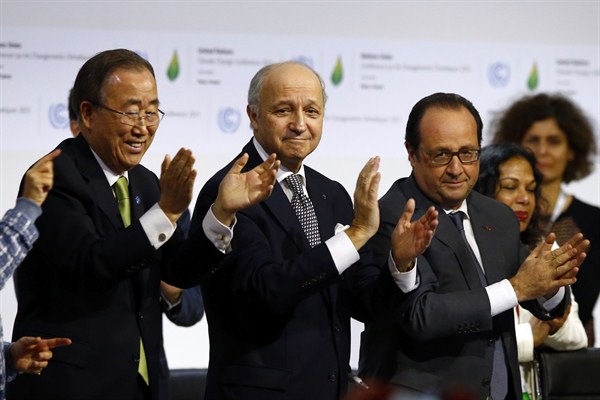The climate change agreement hammered out at the COP21 conference in Paris this weekend inspires a cocktail of contradictory emotions: relief, cynicism, awe and melancholy. It is hard not to be relieved that world leaders have finally agreed on an ambitious agenda to limit global warming. It is equally difficult not to read their pledges with some skepticism.
While the Paris deal was bolder than many had predicted, aiming to stop global temperatures rising by more than 1.5 degrees Celsius, many crucial parts of the deal are not legally binding. The package only has a chance of success if major economies stick to their pledges to curb carbon emissions. Even if they remain honest, scientists doubt that it will be enough to keep temperatures under control.
Supporters of the bargain have largely adopted a Churchillian argument. This is not the beginning of the end of the fight against climate change, but it may be the end of the beginning: There is now at least an agreed framework for cutting carbon emissions.

